Political theory: general questions
Dear Hiveans,
as we had lots of politics in the last weeks, today I'd like to write more general about polital theory, and share some of my unpopular thoughts.
Democracy vs. Republic
- Republic: In a republic certain civil rights are unalienable (meaning that they cannot be taken away, transferred, or denied), like freedom of speech, religion, effective self-defense (=the right to bear arms) or property right.
- Democracy: first of all democracy is not a political system, it is a method for decision making. A pure democracy (meaning that everything can be voted upon) cannot grant rights to its citizens, as a majority (be it a simple majority, a 50% majority or a 2/3 majority) can override any rights and oppress minorities.

Thus, conceptually, I am a Republican, not a Democrat.
A Republic must ensure that the people can vote and peacefully remove politicians while preserving the people's unalienable rights. According to the brilliant physicist and philosopher David Deutsch, the first-past-the-post system (majority voting system like US, UK) has the great merit of facilitating the removal of bad leaders, while, contrary to popular belief, proportional representation (most of continental Europe) essentially hinders the removal of bad leaders (often handing disproportionate power to the third-largest party)(Popper's criterion).
Furthermore as any system, a republic should aim to preserve itself. For this certain people (public enemies) need to be excluded from taking power. Let's take a look at Germany. Angela Merkel was raised and socialized in Communist East Germany. She underwent all Communist youth organizations (Pioneers, FDJ) and was trained for 35 years to hate and fight West Germany (BRD/FRG, wiki). This led to some disastrous decisions between 2005 and 2021, whose consequences we shall see. According to wiki:
At the Academy of Sciences, she became a member of its FDJ secretariat. According to her former colleagues, she openly propagated Marxism as the secretary for "Agitation and Propaganda". However, Merkel has denied this claim and stated that she was secretary for culture, which involved activities like obtaining theatre tickets and organising talks by visiting Soviet authors. She stated: "I can only rely on my memory, if something turns out to be different, I can live with that."
In my opinion when allowing to take over the Chancellorship, the administrative state (Office for the Protection of the Constitution) failed to protect Germany. Where should be the boundary between "protecting the country" (preventing Merkel's rule) and "equal right to be elected"?
Voting rights
I always wondered why children aren't allowed to vote (via their parents). They are most affected by political decisions (as these decisions have long lags). In my opinion this shouldn't be controversial at all. Giving parents the right to vote for their children would inhibit crazy child mutilation based on insane gender "theories", and it would decrease the risk of a blatant robbing of the future generations via government debt.
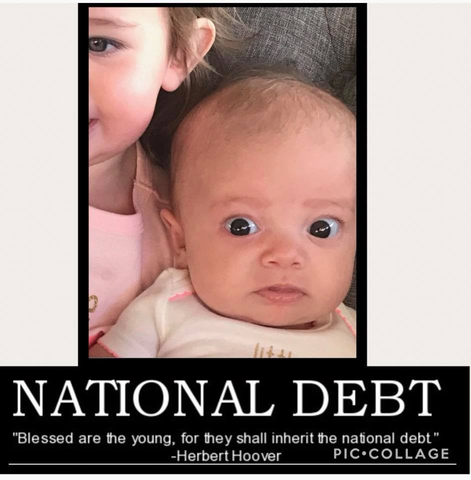
On the other side one could ask if 95-year old people should be allowed to vote? Statistically they are scarcely affected by political decisions. But they may have precious wisdom. So don't take this point too seriously.
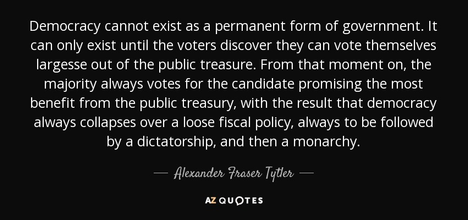
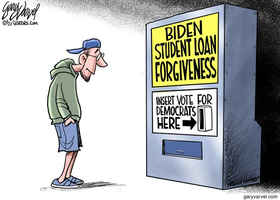
Heart and Brain
I've often heard the following quote:

Then I found the original from John Adams: "A boy of fifteen who is not a democrat is good for nothing, and he is no better who is a democrat at twenty".
I would reformulate: If you trust in the state at 20, you haven’t yet developed your brain adequately. If you still trust in the state at 40, all hope is lost for you.
What's your unconvenient thoughts about our state of politics?
Have a great day,
zuerich
Memes...
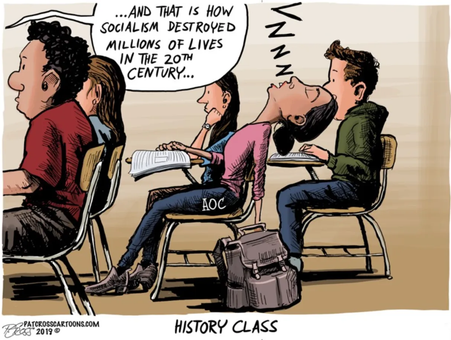
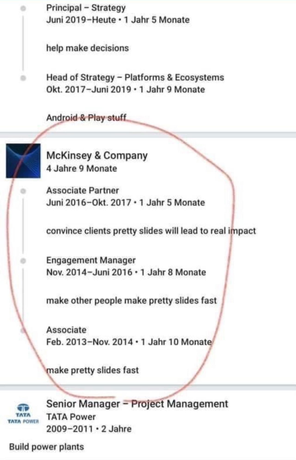
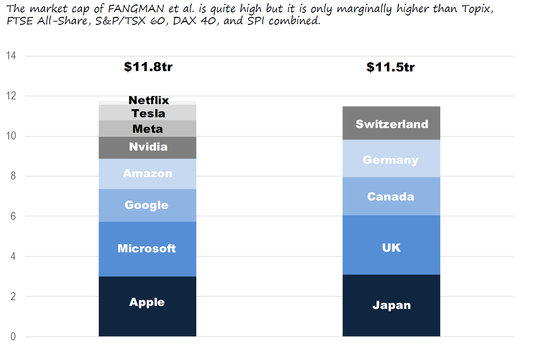


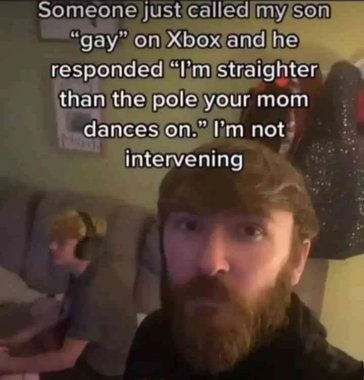

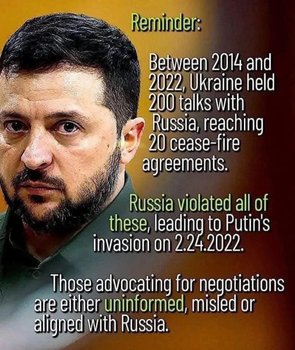
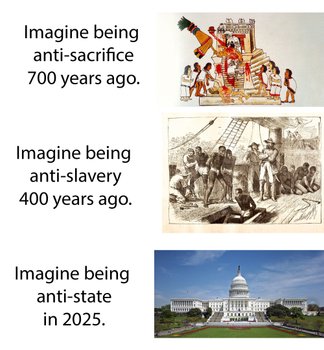
Liebe Hiver,
da wir in den letzten Wochen viel über Politik gesprochen haben, möchte ich heute etwas allgemeiner über Politiktheorie schreiben und einige meiner unpopulären Gedanken teilen.
Demokratie vs. Republik
- Republik: In einer Republik sind bestimmte Bürgerrechte unveräußerlich (d.h. sie können nicht weggenommen, übertragen oder verweigert werden), wie z.B. Redefreiheit, Religionsfreiheit, effektive Selbstverteidigung (=das Recht, Waffen zu tragen) oder Eigentumsrecht.
- Demokratie: Zunächst einmal ist die Demokratie kein politisches System, sondern eine Methode zur Entscheidungsfindung. Eine reine Demokratie (d. h. es kann über alles abgestimmt werden) kann ihren Bürgern keine Rechte gewähren, da eine Mehrheit (sei es eine einfache, eine absolute oder eine 2/3-Mehrheit) jegliche Rechte außer Kraft setzen und Minderheiten unterdrücken kann.

Daher bin ich vom Konzept her ein Republikaner, kein Demokrat.
Eine Republik muss sicherstellen, dass das Volk wählen und Politiker friedlich abwählen kann, während die unveräußerlichen Rechte des Volkes gewahrt bleiben. Dem brillanten Physiker und Philosophen David Deutsch zufolge hat das Mehrheitswahlrecht (wie in den USA und im Vereinigten Königreich) den großen Vorteil, dass es die Absetzung schlechter Politiker erleichtert, während das Verhältniswahlrecht (in den meisten Ländern Kontinentaleuropas) entgegen der landläufigen Meinung die Absetzung schlechter Politiker behindert (da es oft der drittgrößten Partei unverhältnismäßig viel Macht verleiht) (http://www.theopensociety.net/2017/03/poppers-criterion-of-a-democracy/).
Außerdem sollte eine Republik wie jedes andere System darauf abzielen, sich selbst zu erhalten. Zu diesem Zweck müssen bestimmte Personen (Staatsfeinde) von der Machtübernahme ausgeschlossen werden. Werfen wir einen Blick auf Deutschland. Angela Merkel ist in der kommunistischen DDR aufgewachsen und sozialisiert worden. Sie durchlief alle kommunistischen Jugendorganisationen (Pioniere, FDJ) und wurde 35 Jahre lang darauf trainiert, Westdeutschland (BRD, wiki zu hassen und zu bekämpfen.) Dies führte zu fatalen politischen Entscheidungen zwischen 2005 und 2021, deren Folgen wir noch sehen werden. Laut wiki (übersetzt):
An der Akademie der Wissenschaften wurde sie Mitglied des Sekretariats der FDJ. Nach Angaben ihrer ehemaligen Kollegen propagierte sie als Sekretärin für „Agitation und Propaganda“ offen den Marxismus. Merkel hat diese Behauptung jedoch bestritten und erklärt, sie sei Sekretärin für Kultur gewesen, was Tätigkeiten wie die Beschaffung von Theaterkarten und die Organisation von Vorträgen sowjetischer Gastautoren umfasste. Sie erklärte: „Ich kann mich nur auf mein Gedächtnis verlassen, wenn sich etwas als anders herausstellt, kann ich damit leben.“
Meiner Meinung nach hat die Verwaltung (Verfassungsschutz) bei der Übertragung der Kanzlerschaft an Merkel versagt, Deutschland zu schützen. Wo soll die Grenze zwischen „Schutz des Landes“ (Verhinderung der Herrschaft Merkels) und „gleiches Wahlrecht“ liegen?
Wahlrecht
Ich habe mich immer gefragt, warum Kinder nicht wählen dürfen (über ihre Eltern). Sie sind von politischen Entscheidungen am meisten betroffen (da diese Entscheidungen eine lange Wirkungszeit haben). Meiner Meinung nach sollte dies überhaupt nicht umstritten sein. Den Eltern das Wahlrecht für ihre Kinder zu geben, würde Kinderverstümmelungen auf der Grundlage verrückter Geschlechter-„Theorien“ verhindern, und es würde das Risiko einer eklatanten Beraubung der zukünftigen Generationen durch Staatsverschuldung verringern.

Auf der anderen Seite könnte man fragen, ob 95-jährige Menschen wählen dürfen sollten? Statistisch gesehen sind sie von politischen Entscheidungen kaum betroffen. Aber sie können über wertvolle Weisheit verfügen. Nehmt also diesen Punkt bitte nicht zu ernst.


Herz und Hirn
Das folgende Zitat habe ich schon oft gehört:

Dann habe ich das Original von John Adams gefunden: „Ein fünfzehnjähriger Junge, der kein Demokrat ist, taugt zu nichts, und er ist nicht besser, wenn er mit zwanzig ein Demokrat ist“.
Ich würde das umformulieren: Wenn man mit 20 auf den Staat vertraut, hat man sein Gehirn noch nicht ausreichend entwickelt. Wer mit 40 noch auf den Staat vertraut, für den ist alle Hoffnung verloren.
Was sind Eure unbequemen Gedanken zum Zustand unserer Politik?
Have a great day,
zuerich
Memes...









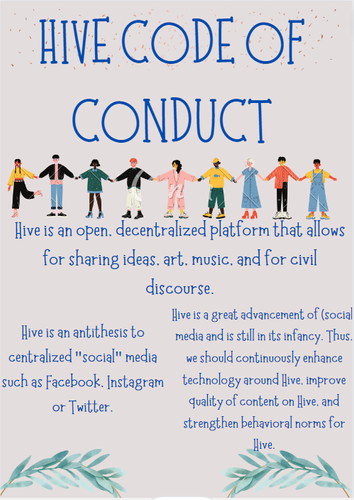
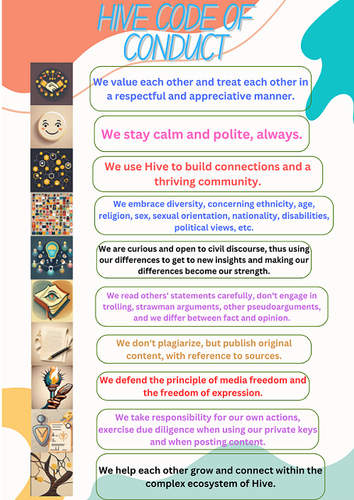
Congratulations @zuerich! You have completed the following achievement on the Hive blockchain And have been rewarded with New badge(s)
Your next payout target is 78000 HP.
The unit is Hive Power equivalent because post and comment rewards can be split into HP and HBD
You can view your badges on your board and compare yourself to others in the Ranking
If you no longer want to receive notifications, reply to this comment with the word
STOPLovely thoughts but as always the memes are the best bit😂😂😭
Good day.
i wonder what are your thoughts regarding a Network State which uses a FOSS Layer Zero (cross-chain) Anonymous Decentralised Privacy Preserving Fractal Democracy system (like a Concentrated Consensus making factory).
Very good to read this from a European, @zuerich. It is easy to answer this question:
Long (relatively speaking) ago, during my years of political activism and visiting literally hundreds of people in their homes, I would start our conversation with a simple question:
Sadly, never ONE time did I receive anything other than some sort of affirmative response. Which led to my next question:
Which far too often resulted in something like - "What is the difference?" The damage done by America's public education system was / is hard to overstate.
And on from there ...
There is something profoundly sad about how people will not accept the responsibility of making a well-informed voting decision. No, in their prosperity and resulting comfort, they are far too complacent and apathetic. Using your sheep analogy, if they vote at all, they are "herded" to the polls, to vote the way they have been driven ("everybody knows!") to vote.
Thankfully, we are experiencing some long overdue correction of this sad state of affairs. What will the outcome be against all the challenges raised up to stop it? Only God knows.
As you rightly point out, the future of our children and their children is directly affected. Hopefully, we will be able to tell them some day what we did, while there was still time and opportunity to make a difference.
Politically, this is the most exciting times for many decades (at least since 1991). Let's hope it goes well 🙏
We will all find out soon enough. With family and friends, I have stated I believe Trump's two most significant contributions to our future, in his first term:
Internationally: Recognizing Jerusalem as the capital of Israel. And moving our embassy there. Permanently.
Domestically: Selecting 3 of the 9 justices of our Supreme Court. Then relentlessly backing them through the meat grinder of our Senate's approval process.
This latter point is now in clear focus, as he attempts to TRULY dismantle the "unelected 4th branch" of our massive administrative "empire." Many, if not all, of the legal challenges to this will end up in the Supreme Court.
Then we will find out how truly wise and discerning he was, in his first term when he selected these people.
[Yes, truly is restated over and over, as it has become increasingly more difficult to know what is true. And what is not.]
Guten tag, Dear @zuerich !
East Asians like me generally think of Europe as having a socialist state system.
I thought Switzerland had a parliamentary democracy! But Switzerland is not a republic.
In fact, Switzerland is a republic.
It is a republic with democratic elements, one of which is a parliament, another one is federal referendums.
Dear @zuerich !
East Asians like me think that Europe is socialist and America is capitalist.
However, I felt that the political system of Europe is different from the republican system of America! Switzerland is a republic, but I thought it was different from the republican system of America. I'm not sure if I understood your English sentence!
Many East Asians now speculate that the European economy is collapsing because of the war in Ukraine!
They think that East Asian economies will surpass Europe!
Danke!😃
I'm sure it will. People here are so complacent to not even realize their moral and economic decline.
!MEME
Posted using MemeHive
Credit: fun.miner
Earn Crypto for your Memes @ HiveMe.me!
As always, a provocative post.
I don't know about this one, @zuerich. In the U.S. this would result in weighting the electorate toward the less educated and those who are observant (religious.)
I think a more educated electorate would yield better results, and I don't want the influence of religion in my country getting any stronger.
On average, 24% of women with a bachelor degree (or higher) have 3 or more children. More than 37% of those without a degree have 3 or more children.
Also, on average the religious (attend services once a week or more) have an average of approximately 2.2 children and those who don't attend any services have less than 1.5.
As a 78-year-old (next week will be my birthday), I take exception to this :)) I don't know anyone who isn't affected by political decisions. Plus, as I get older, I think even more about consequences to posterity. A young person has a narrow focus, one centered on individual prosperity. As an older person, I have a wider perspective. It's not about me so much, but about the future for everyone, especially my family.
Dear @agmoore,
thank you for your comment which I much appreciate.
Excellent points, @zuerich.
That these people have no system of belief simply does not stand up to close scrutiny. Of course they do, whether openly and honestly acknowledged or not.
I am highly educated, as these people view the word. And as an engineer. As such, intentionally avoiding ALL of the philosophical types of courses which are intentionally designed to subvert the minds of the young people passing through them.
Thank you very much for giving me this opportunity to explain the rationale behind my comment.
I will, right here. Of course, this is my opinion. I do not suggest by offering an opinion that I have superior insight, or a path to the truth. Given that conditional prelude, here goes:
You have written in the past that you are a student of history. I also have tried to be informed about history throughout my life. It is history that helps me to understand events as they happen. Every moment in history is unique, but looking at the past, at patterns and occurrences may give a clue as to what is happening at present. It's like a doctor trying to understand an illness. Each patient and each illness is unique, but doctors look at experience, at the past, to try to predict the course of a current illness.
Having a discussion with someone who has no knowledge of the past is not a productive exercise. I can't refer to the history of Russia, to the rise and fall of autocratic governments, if the person with whom I am conversing has no knowledge of these things. I can't explain the reason rule of law was critical to the founding of my country, if the person I'm speaking with has no understanding of how the nation was founded, of the arguments between founders about the balance between the people and government authority.
Even more immediately, an understanding of how the middle class evolved in this country might inform decisions about political choices. I believe personally in unions, and I think the Progressive Movement at the beginning of the twentieth century was good. You may not agree, and others may not agree. However, that disagreement should not be premised on ignorance of changes the Progressive Movement effected, and of what the country (jobs/employment/standard of living) was like before those changes came into existence.
Representative government is based on voters expressing choice. Is it not in the interest of the nation to have that choice be informed by an understanding of issues? In the current situation in which my country finds itself, constitutional challenges are in the fore. We can all have an opinion about the importance of the Constitution and the rule of law. But that opinion should be based on an understanding of how the Constitution came to be, of the underlying arguments that led to its drafting, of the history that preceded our revolution and the formation of government.
A representative government works best ("better") if its citizens are informed and make informed decisions. That is, if its citizens are educated.
Of course people have a ideology, even if they think they don't--a set of basic principles that motivate decisions, behavior. However, organized religion is quite a different matter. Once again, I turn to history.
When my country was founded it had a long memory of the religious wars in Europe. As a matter of fact, motivation for many who came to my country was to avoid that religious strife.
In the early years of the colonies there were religious issues that spilled over from the continent. Maryland banned the practice of Catholicism. Jews were banned. Georgia had similar issues. In the Northeast, different religious sects battled for supremacy.
This is a heritage the founders of my country, those who drafted the Constitution, did not want to be part of our nation. We had enough to fight about. Taxes. Rural vs. urban. South vs. North. etc. Religion had the potential to tear us apart. Therefore, we were founded as a secular nation. The very first words in the first Amendment to our Constitution:
"Congress shall make no law respecting an establishment of religion, or prohibiting the free exercise thereof;"
You may disagree with that principle, and many people do. However, again I return to the people who founded this nation, who wrote our Constitution.
People may find the Constitution an impediment to what they want to accomplish. They may not agree that it is the one document in our nation that has to be inviolable. Once we assert that the Constitution is not the ultimate authority, then we are on the path to monarchs (autocrats,rule by fiat). You and others may believe this is a superior (rule by fiat/strongman) form of government. I don't
There are factions in my country that try to get around the first Amendment, the separation of Church and state. They talk about morality, and principle. What they mean is their morality, their principle. This is a path we've known through history. It led to strife and oppression in Europe. Our founders knew that, and they tried to protect against it.
Many years ago, when I was a child, I fell in love with the idea of my government, with the idea that it was of the people, by the people, for the people. That idea has never been perfectly (or even nearly perfectly) realized. But it is a goal.
I think a lot of voters agree with me, that we want a government of the people, by the people, for the people. What we don't agree on is how to protect that principle. An education, I believe, helps the electorate to make choices that will advance their wish to protect the kind of government they want.
There you have, a brief (!) summary of how I come to believe that an informed electorate is likely to yield a 'better' result. I also explain in this brief (!) comment why I do not want the influence of religion to grow stronger in my government.
I truly do appreciate the opportunity to expand on my views.
Thank you, @zuerich. ⭐️
Thank you for your very interesting view, @agmoore.
I fully agree. People should have education and should be informed. Who should be responsible for the education? The state/government? Who defines what is information, misinformation, fake news, etc.? In my opinion people increasingly doubt the truth or veracity of information published by the mainstream media, and that is partially based on their failure to objectively and neutrally report about topics such as inflation, Covid-19, vaccines, and many more. My next post will be about home schooling as I am in the process of thinking about the "right" decision for our children. That also plays into the important question about who should have the authority to choose which information should be fed to children or to the people (which is under the tutelage of the state?).
Yes, and I consider that as bad, too. Other factions want to abolish the second amendment. Is that amendment worth less than the first? I hope the constitution will be held high and that the people's rights will be preserved.
Thank you for your response. I often find that views we think are far apart may have a kernel of agreement in them.
When I became a teacher it was by accident. I was trained in history, comparative literature and the humanities, not education. I taught social studies (history/government). Every year in my first class I would tell the kids not to believe me. Even if I wasn't lying, I could be wrong. Once a week I'd bring in newspapers with contrasting points of view. I'd show them how editorializing began even before a word was written. What the paper chose to cover, the size of the headline, the placement of the story. All were compelling elements in coverage.
Fake news is not new. And ideologically slanted school books are not new.
As parents, how do we protect our children? I struggled with that challenge also. Education of my children began before nursery school. I taught them both reading and basic math. I changed schools. Tried private school. As you suggest, there was no ideal solution. Home school for me was not an option because I lead a very quiet life (no tea parties, no bowling club) so my kids would have been isolated. That's a serious issue.
I tried to educate/socialize my kids at home by spending a lot of time with them. They were the major focus of my life for the early years (I stopped working for those years).
If you follow @jaki01's blog, and his wife's, @kobold-djawa, you will see they struggled with this issue also as their daughter reached school age.
Good luck. I don't think there is an easy answer to this problem (and yes, I think parents are responsible for children's education).
As for the Second Amendment: We were founded as a frontier country. Every man/woman for himself/herself. Guns were essential. They are now part of our culture. My husband hates guns (he does not have happy memories from Vietnam), but my kids, my nieces and nephews mostly think guns are necessary in the home. I have no problem with that. I do have a problem with AK47s. Military grade weapons are not necessary. I draw the line there.
Thank you!!!!
As we are close enough in age and both American, @agmoore, I can agree with this:
Reading through your response, however, this might be confusing to some, as you seem to imply a significant part, of our country's challenges, is that we have too many children?
Or is it we just have too many of certain types of children?
Hello @roleerob,
Welcome to the septuagenarian club.
Please read my comment to @zuerich in which I explain more completely my views.
Edit: Please note. I love children. I am one of six and I had two of my own. My comment was not about the number of children, but about giving families with more children a weighted vote. It's about voting, not demographics. By all means, have more children. We should treasure the children in our society. They are the future.
Okay, thank you for your response, @agmoore. I did read your entire initial response and my quotes are what stood out to me. Presented to you in the form of a question, as well as the potential for misunderstanding. You have clarified now what you were intending to say.
I have also now read your 2nd response to Zuerich. As you are expanding on your view of the importance of education, I would welcome hearing how you think that is going with our younger generations?
Hi, @roleerob,
Not well. The performance is profoundly uneven across the country. Correlation with wealth/race is quite high. That is true, for example, in my neck of the woods. School district lines are strictly enforced. In my old neighborhood there was actually a street that separated school districts. One side of the street belonged to a nationally recognized district. The other side belonged to a distressed district. Home values followed that school district line.
Edit:
I can't resist adding to this. If we want to fix our education system in the U. S. we can do a few things.
Get rid of schools of education. They teach nothing. When I briefly became a teacher (career change), I had to take the national qualifying test. It had three parts. One was on education, as taught in the schools of education. That test was so simple, so filled with common sense responses, that it was tragic. Teachers should be schooled in academic areas. They should be the smartest, not just people who want summers off.
Make teachers accountable to outcome. Pay and even job security should be linked to the success of the students. Not until that happens will teachers actually teach.
Throwing money at the problem won't help, unless that money buys talent. Talent in the classroom means getting results.
I don't think every child should be mainstreamed. If a child cannot or will not cooperate in class, there should be special schools, as there used to be. A teacher cannot teach if he/she is constantly taking up instruction time with discipline issues.
OK. I got that off my chest :))
Yes, @agmoore.
We agree on that. And this is hardly new. We were both around, when Reagan's "National Commission on Excellence in Education" issued their final report in 1983. With this damning summation:
Could their judgment have been stated any more clearly? Surely, then, Congress "got right on it." Right? Of course they did. Leading John Taylor Gatto, New York's Teacher of the Year, to write his well known book, "Dumbing Us Down ," in 2002.
I could go on, but I'll refrain.
We do not agree on this, if in any way, as seems self-evident, you are making a case the sorry state of our education system is in any way based upon the fact there is still not enough money being spent. I say that from my own experience base of sitting on a private school board for six years, with far less $$ / student (~75% less, at that time) spent than the published figures for any student in the public education system.
In whose hands do you believe the primary responsibility for the education of our children rests? Their parents? Or the State?
You state:
How is it evident? I clearly state:
You ask:
I ask, Does the country, does society, have an interest in the education of its children?
The home has the most powerful influence on a child. Hence, my statement:
How can you disagree? The children of richer people get better educations. That's a fact. Should society care? Should we care?
I think schools are one place where society can level the field a bit. But that won't happen under the current system. Teachers have to be better, smarter. They have to be accountable for outcomes. Today they are not.
I'll make a final point. I trace the decline in education to an act of Congress in 1975 that mandated disabled children need to be accommodated in mainstream classrooms. As time passed the mandate grew to include prohibitions against removing children who were behavior problems. The law is ridiculous. A child has to have a gun, or carry drugs to school to get a temporary suspension. Instead of uplifting the disabled, this law depresses the achievement of the everyone.
I know of one mainstream class where more than 50% of the children have IEPs. There is no way the class can achieve high academic success in that environment.
I appreciate your response, @agmoore. And I thank you generally for it being civil and respectful. And I thank you specifically for pointing out my error in not catching what you had stated, "Throwing money at the problem won't help" You are correct. You clearly stated it.
If you will permit, to my reading of it, there is a logical inconsistency that led me to respond the way I did. Let me address that more broadly, instead of focusing on the word "money." How would I do that? Substitute a broader reference to something like, "socioeconomic status" or similar?
While we can agree, perhaps, that has a bearing on the topic, I do not agree that is the primary problem. While stated far too simply, attempting to state it succinctly, I believe the roots of the problem are far more philosophical than they are economical. Which addresses all of your questions, without specific point-by-point detailed responses to each of them.
Based on what you have said thus far, then, it would appear we have a rather fundamental disagreement. Which is, of course, just fine, as I would hope we can at least agree we could still peacefully coexist, nonetheless.
Beyond that, I could go on. I am peacefully and productively retired. I have plenty to do, to keep me busy, but I don't mind discussing this further, if it is of any interest. However, I won't presume that to be the case. Long an advocate for interpersonal relations of any kind (personal / professional / ?...?) being mutually beneficial, I'll leave it here, until next time.
It has been a pleasure to have this exchange with you. Age has taught me that I am wrong, often...or at least that I'm not exactly right. I recognize that philosophically we may have disagreements about the role of government.
Of course I'm civil, as you have been. Each of us has lived a long time and each has come to our views after a lifetime of experience. I am perhaps less committed to my perspective on government than you may believe.
It can be (usually is) rotten and corrupt. It can be, (and often is) intrusive. It is certainly wasteful. I remember reading about bureaucracy in imperial Russia. It was a cesspool. It swallowed people up--their time, their money, even their freedom.
Sometimes it feels as though we have reached that level of bureaucracy in this country. I'm all for cleaning that out.
However...government is necessary. Government can be good. I believe it can help to guarantee liberty in our country if we follow that wonderful document drafted by our founders, the Constitution. I oppose autocracy, one-man rule. The only way to avoid one-man rule is to hold whoever leads us to the law. To the Constitution.
I think you and I may agree on values. I think we both love our country very much. And yet I'm certain there is a wide gulf between how each of us believes we can support those values and our country through political action.
Wishing you the very best. Happy to know you are retired peacefully. I guess I'm retired, but have significant family obligations at this time in my life.
Yes, thank you kindly @agmoore:
Ditto. What is always nice is to find someone with whom you can have a reasonable conversation. Although I can say I would much prefer to happily sit down, buy you a cup of coffee (or something similar), and share from our experiences.
What I would imagine we can both agree on is this. With good intentions on both sides, that conversation would be beneficial to us both, in seeing through the eyes of another, and we would almost certainly leave with the gap being closed down. Not all the way. But, at least some ...
Perhaps our paths will cross again. As we both watch what unfolds, for the sake of those near and dear to us, in the next generations. With both of us hopeful the wisdom of our Founders, so well documented in the Declaration of Independence and the U. S. Constitution, will prevail.
All the best to you, for a better tomorrow!
⭐️🌟✨